International Conference on Curriculum and Educational Instruction 2025
(APROCEI ICCEI 2025)

Engagement in Learning through Character building and Competence-based Curriculum
With a Special Strand On Early Childhood Care & Education
30 – 31 May 2025
SEGi College, Subang Jaya,
Malaysia
Registration Closed!
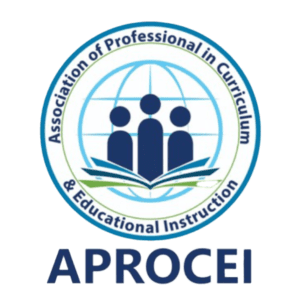
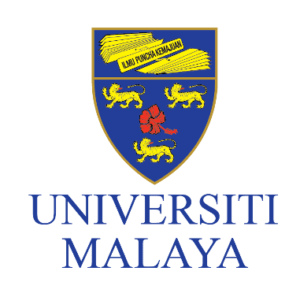

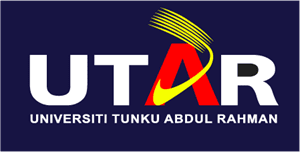
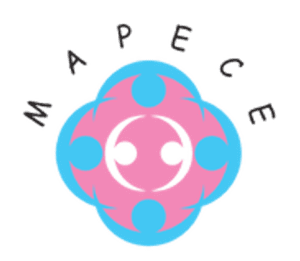

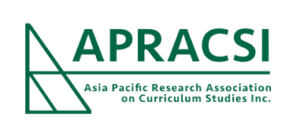
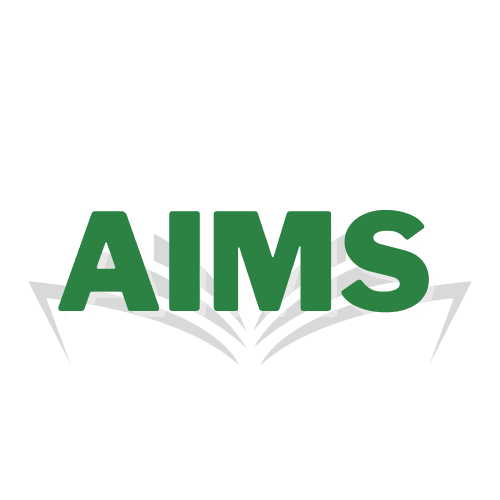

Conference Sub-themes
- Brain-based curriculum
- Early Childhood Care and Education
- AI and curriculum
- Authentic assessment
- Digital education
- Character building
- Research in Curriculum
Highlights
- 4 Keynotes and Invited Speakers
- 3 Workshops
- In-person and Virtual paper presentation
- 3 Symposia
- Individual/small group research consultation
Potential Participants
- Curriculum Developers
- Officers from Ministry of Education
- Teacher Trainers
- Lecturers
- School Leaders
- School Teachers
- Policy Makers
- Students

CALL FOR PAPER
Interested individuals are invited to submit papers aligned with the conference theme and subthemes. The paper can be either research based or conceptual. Research paper must have clearly stated research goal(s), research questions, methodology and findings. Conceptual paper must have clear objectives, theoretical or conceptual framework and critical analysis. Abstract must not be more than 250 words. Please state the subthemes of the paper and keywords at the bottom of the abstract and submit to the conference secretariat. Conference proceedings with abstract will be published online.
Important dates:
- Deadline for abstract: 15 April 2025
- Notification of acceptance of abstract: 1 May 2025
- Submit abstract to the following email: aproceimsia@gmail.com
- The file name should consist of name, mode of online or on-site
SUBMISSION OF PAPER FOR PUBLICATION
Successful papers presenters may submit their full paper to the following journals for possible publications, subjected to the terms and conditions by the respective journals.
These journals are:
- PROSPECTS, Comparative Journal of Curriculum, Learning, and Assessment, Scopus
- Malaysia Journal of Qualitative Research (MJQR), MyCite indexed journal
- Asia Pacific Journal of Business, Humanities and Education (APJBHE), indexed peer reviewed
- Malaysian Online Journal of Educational Science (MOJES), ERIC, MyCite, Google Scholar
- Asia Pacific Journal of Curriculum Review (APJCR), peer reviewed
CONFERENCE SCHEDULE
(subject to changes) *Hybrid
| 7:30 – 8:25 am | Registration |
| 8:25 am – 8:30 am | Welcome speech |
SECTION I: INVITETD SPEAKERS (Chairperson: Prof Dr. Rohaida Mohd Saat) | |
| 8:30 am – 9:15 am | Keynote Speaker 1: AP. Dr Haley Lamonica, University of Sydney * |
| 9:15 am – 10:00 am | Keynote Speaker 2: AP. Dr Mei Chih Hu, Tzu Chi University Taiwan * |
| 10:00 am– 10:15 am | Q & A |
| 10:15 am– 10:30 am | Tea break |
| SECTION II: SYMPOSIA AND PARALLEL PAPER PRESENTATION | |
10:30 am – 1:00 pm ( 2 ½ hrs) | Symposium A: Unlocking Potential: How Competency-Driven Curricula Foster Holistic Growth in Young Children * (Chairperson: Dr Siew Siew Kim) Symposium B: Empowering Learners through Humanized STEM: Merging Science, Ethics, and Values * (Chairperson: AP. Dr Hidayah Mohd Fadzil) |
| Parallel Paper Presentations I : physical session (Chairperson: Dr Florence Kuek) | |
| 1.00 pm – 2:15 pm | Lunch |
| SECTION III: SYMPOSIA, WORKSHOP AND PAPER PRESENTATION | |
| 2:15 pm – 4:15 pm | Symposium C: Humanising Curriculum : How Educators Foster Interest in Learning * (Chairperson: Dr Ngeow Yeok Meng) Zoom 1 |
| Workshop 1: Engaging Young Learners through the use of materials from nature and daily life by Dr Ong DJ and Prof. Dr Janchai (Chairperson: Ms Nor Fadhilah) | |
| Parallel Paper Presentations II: physical session and online session*Zoom 2 (Chairperson: Dr Anna Phang) |
| 7:30 am – 8:10 am | Registration |
| SECTION IV: INVITED SPEAKERS (Chairperson: Dr. Ilhavenil A/P Narinasamy) Zoom 1 (Venue: Auditorium) | |
| 8:10 am – 8:50 am | Keynote Speaker 3: Dr Mari Yasunaga* |
| 8:50 am – 9:20 am | Keynote Speaker 4: Datin Dr Ng Soo Boon * |
| 9:20 am – 9:50 am | Special sharing: Mr R Keeth Matheny: Social Emotional Learning* |
| 9:50 am – 10:00 am | Q and A |
| 10:00 am – 10:15 am | Tea break |
| SECTION V: WORKSHOP AND RESEARCH CONSULTATION | |
| 10:15 am – 1:00 pm | Workshop 2: Hands-on Experiencing the Technology (Chairperson: Dr Mazlan Ismail & Dr Chiang Kok Wei) Workshop 3: Teaching Social-Emotional Learning by Ms Alina Amir and team (Chairperson: Ms Tengku Ireneza Marina bt Tunku Mazlan) |
| Research consultation (Quantitative, Qualitative and Mixed Methods; Curriculum studies in STEM, humanities and Early childhood) – Physical | |
| 1:00 pm – 2:00 pm | Lunch |
| SECTIONN VI: WORKSHOP AND RESEARCH CONSULATATION | |
| 2:00 pm – 4:30 pm | Workshop 4: Early Mathematics by Ms Teh Kim Hong (Chairperson: Dr Chiang Kok Wei & Dr Anna Phang) Workshop 5*: Naughty Children or Children in Crisis? By Dr Pang Jee Ching (Chairperson: Mejar Dr Mejar Rosmalily Bt Salleh) Zoom 1 |
| Research consultation Zoom 2 | |
| 4.30 – 4.45 pm | Closing ceremony |
Program Book
Symposia
(A) STEM : Empowering Learners through Humanized STEM: Merging Science, Ethics, and Values
Moderator: AP. Dr. Hidayah Mohd Fadzil
Speakers:
(i) Prof Dr Rohaida Mohd Saat (Science Edu, UM)
(ii) Dr. Azni Yati Kamaruddin (Values Education, UM)
(iii) Dr. Mohamad Hisyam Ismail (Science Edu, UiTM)
(iv) Dr. Levi E. Elipane (College of Advanced Studies, Philippine Normal University)
STEM education is often focused on technical skills and knowledge acquisition. However, in an era where scientific advancements have profound societal implications, it is crucial to integrate ethical considerations and values into STEM learning. This symposium, Empowering Learners through Humanized STEM: Merging Science, Ethics, and Values, explores how STEM education can be transformed to nurture not only competent individuals but also responsible and empathetic global citizens. The panel brings together esteemed experts in science education and values-based learning. This session aims to spark meaningful discussions on integrating ethics, empathy, and societal impact into STEM education, ensuring that learners are equipped with technical expertise and the moral compass to navigate complex global challenges. Educators, policymakers, and researchers are invited to join this critical discourse in shaping a more holistic STEM education framework.
(B) ECCE : Unlocking Potential: How Competency-Driven Curricula Foster Holistic Growth in Young Children
Moderator: Dr Siew Siew Kim
Speakers:
(i) Associate Prof. Dr. Haley LaMonica (BMC, University of Sydney, Australia)
(ii) Associate Prof Dr. Mei-Chih Hu (Tzu Chi University, Taiwan)
(iii)TBC
The early years of a child’s life are critical for cognitive, social-emotional, and physical development. A competency-driven curriculum plays a key role in supporting this comprehensive growth. This symposium will bring together experts in curriculum development, neuroscience, and early childhood education (ECCE) to explore how competency driven frameworks can promote academic success while fostering emotional and social growth. As the need for curricula that support both cognitive and social-emotional development grows, the symposia will focus on how integrating these aspects enhances overall child well-being and academic performance. Insights from neuroscience will emphasize how early brain development and key skills such as empathy, self-regulation, and resilience impact children’s success in school and life. By encouraging collaboration among professionals, the symposia will share best practices for embedding both cognitive and emotional competencies into learning experiences, addressing challenges in balancing academic and emotional growth.
(C) Humanities : Humanising Curriculum: How Educators Foster Interest in Learning
Moderator: AP. Dr Ngeow Yeok Meng (UTAR)
Speakers:
(i) Dr. Wei Chooi Yi (UTAR)
(ii) Dr. Thurkadevi Munikanan (Psychiatrist, Hospital Miri, Sarawak and Perdana
University, Malaysia)
(iii) Ms Tan Kim Kiek
(iv) Dr. Mari Yasunaga
Addressing the issues of students’ early drop-outs, lack of interest, and socio-emotional challenges beyond the classrooms, this symposium gathers panelists consisting literary scholar, psychiatrist, sexuality expert and community activist to share their insights on making curricula more relevant to students. Their years of working with schools, vulnerable students and communities, shall provide us with practical guidance to make the learning environments more conducive, inclusive, stimulating and safe for students, so that no students are left behind. For educators, pedagogies that are efficient and sustainable – cultivating reading habits, mindfulness, peer interaction, the use of literary resources, fun games and protective measures against bullies and biases, can foster emotional and social growth. This symposium shall provide us practical tips and insights into humanising the curricula from various experts’ perspectives
Workshop
Developing Mathematical Thinking and Values in Early Years and Primary Mathematics
Speakers:
(i) Ms Teh Kim Hong – Mathematics Educator
Mathematics teachers often emphasise the subject matter knowledge and give less weight to developing mathematical thinking and values while teaching mathematics. This workshop is designed to promote and encourage mathematic teachers to integrate the mathematics content together with the mathematical thinking processes and values while planning their lessons. Workshop participants will be given sample tasks on numeracy and problem solving to develop mathematical thinking. By working through the exercises and discussions, participants will be more aware that developing mathematical thinking and values is equally essential to developing students’ mathematical competency.
Teaching Social-Emotional Skills
Speakers:
(i) Ms Alina Amir and team – Arus Academy
This interactive and hands-on workshop equips educators with practical strategies to teach social and emotional skills in the classroom. Through engaging activities, role-playing, and real-world scenarios, participants will learn how to foster self-awareness, emotional regulation, empathy, and effective communication among students. By actively participating in experiential learning activities, educators will gain firsthand experience in implementing SEL strategies that create a positive and inclusive classroom environment. Discussions and group exercises will focus on integrating SEL into daily lessons, managing classroom conflicts, and supporting students’ emotional well-being.The benefits of incorporating SEL in the classroom are profound, including improved student behavior, increased academic engagement, stronger relationships, and enhanced resilience. Teachers will leave this workshop with practical tools, lesson ideas, and confidence to seamlessly integrate social and emotional learning into their teaching practices, fostering a more supportive and emotionally intelligent learning community.
Naughty Children or Children in Crisis?
Speakers:
(i) Dr Pang Jee Ching – Nilai University
This workshop shall provide opportunities for the participants to understand our world view on human behaviours underpinning the potential of each child in the classroom, following the increasing number of children with diverse learning needs in the post-pandemic and digital technology advancement. By understanding and accepting the uniqueness and potential of each child, practical strategies for educators will be discussed as educators are encouraged to re-think the strategies in fostering a more emotionally resilient learning environment in the classroom utilizing a competency-based curriculum.
RESEARCH
CONSULTANCY
Moderators: Prof Dr Rohaida Mohd Saat, Dr Ilhavenil a/p Narisamy, Dr Mazlan Ismail
We are offering a research consultation opportunity focused on curriculum studies using either quantitative, qualitative, or mixed-methods research. This consultation is designed for participants seeking expert guidance on applying these research approaches. Whether you need assistance with designing, analyzing data, or integrating methodologies, our experts are here to support you. This is an excellent opportunity to receive personalized advice and enhance your research skills. If you’re looking for professional support to refine your research methodology, we invite you to participate and engage with experienced researchers in the field.
For those who are interested to attend this consultancy, each consultancy will be approximately 20 minutes. Please indicate your research method, research title/focus as well as the specific questions you like to ask during registration. We will try as best as possible to find a suitable ‘consultant’ for you.
Speakers and Facilitators
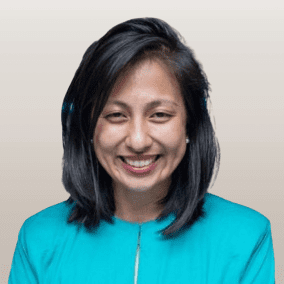
Ms Alina Amir and team
Arus Academy
Alina Amir is the CEO and co-founder of Arus Academy, an education social enterprise dedicated to enhancing learning experiences since 2015. Arus runs nationwide programs in collaboration with the Ministry of Education, UNICEF Malaysia and corporate partners, focusing on various literacies to empower teachers and students through hands-on learning. Currently, she spearheads Program Guru KARISMA, Arus’ Social and Emotional Learning (SEL) initiative aimed at equipping public school teachers with effective SEL strategies. With a decade of experience in teaching, content development, and coaching, Alina is passionate about promoting equity in education, particularly in high-need schools and marginalized communities. To date, Arus has impacted over 120,000 students and 70,000 teachers in Malaysia, with more than 1 million individuals accessing their online resources.
Workshop abstract:
Teaching Social-Emotional Skills
This interactive and hands-on workshop equips educators with practical strategies to teach social and emotional skills in the classroom. Through engaging activities, role-playing, and real-world scenarios, participants will learn how to foster self-awareness, emotional regulation, empathy, and effective communication among students. By actively participating in experiential learning activities, educators will gain firsthand experience in implementing SEL strategies that create a positive and inclusive classroom environment. Discussions and group exercises will focus on integrating SEL into daily lessons, managing classroom conflicts, and supporting students' emotional well-being.The benefits of incorporating SEL in the classroom are profound, including improved student behavior, increased academic engagement, stronger relationships, and enhanced resilience. Teachers will leave this workshop with practical tools, lesson ideas, and confidence to seamlessly integrate social and emotional learning into their teaching practices, fostering a more supportive and emotionally intelligent learning community.
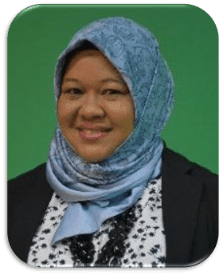
Dr. Azni Yati Kamaruddin ( STEM )
Professor of Educational Foundations and Humanitis, Faculty of Education, University of Malaya
Dr Azni was a primary and secondary teacher before working with University of Malaya. She obtained her Dip.Ed (TESL) from Teacher Training College Melaka, B.Ed (TESL), M.Ed in Value Education at University of Malaya, PhD at La Trobe University, Australia (School of Education). Her PhD work is in Values Education specializing in Civics and Citizenship Education (CCE). Besides teaching, she supervised many pre-service student teachers for their school practicum and research reports. She is also a Master of Humanities Education coordinator. Currently, she is a validator and Adjunt Professor University of Malang, Surabaya, Indonesia and Universitas Negeri Yogjakarta, Indonesia. She has been appointed as internal and extenal examiner for PhD thesis from Pakistan, India, Indonesia and Malaysia. Her main research interests are; Values and Humanities Education, Sociology Education, Teacher Education, Trends and Issues in Education, Quantitative Research and Mixed Mode Research. She has internal and external research grants on these areas and reserarch collaboration with Oman, Jordan, Russia, German, Indonesia and Malaysia universities

Dr Chiang Kok Wei
Curriculum Development Division, Ministry of Education Malaysia

Cory Matheny
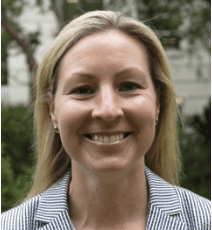
Associate Prof. Dr. Haley LaMonica
BSc, MA, PhD, ABPP-CN Associate Professor Board Certified Clinical Neuropsychologist
Dr Haley M LaMonica is a mid-career researcher and Board Certified Clinical Neuropsychologist with 15 years’ clinical experience across the lifespan. She holds a position as an Associate Professor with the Youth Mental Health and Technology Team at the University of Sydney’s Brain and Mind Centre, where she leads the Digital Mental Health research stream. Her research focuses on the development of effective, clinically relevant, and culturally adapted digital solutions to improve mental health and wellbeing, with experience working with culturally, ethnically, and linguistically diverse groups from low- and middle-income countries.
Title: Supporting child and youth mental health and wellbeing in schools: digital and non-digital strategies
Global trends indicate mental health has worsened among children and young people in recent decades, contributing to poorer academic, social, and functional outcomes. The deterioration in the mental health of young people is thought to relate to large-scale and lasting societal changes, such as intergenerational inequality, insecurity of employment and unregulated social media. Teachers are often the first to identify emotional problems; however, teachers consistently report that they lack the necessary training and skills to adequately support and access resources for young people experiencing mental ill health. There is now a global call to provide teachers with mental health training, both as part of their initial teacher training and ongoingly through professional development, while also improving student’s access to school counselling services. Excessive screen time is viewed as one of the primary drivers of worsening mental health amongst young people, impacting development, physical health, and sleep. However, digital devices can be a powerful tool for education, social connection, and health promotion. Digital literacy needs to be a critical component of school curriculums to ensure children learn to practice digital safety and manage their digital wellbeing. The aim is for young people to be able to critically select digital devices and tools, make use of the technologies available to them, and protect their safety and that of others in digital environments. By promoting digital literacy in schools, young people are more likely to derive benefit from digital technologies generally and digital mental health technologies specifically to access mental health information, support, and care when needed.

Associate Prof. Dr. Hidayah Mohd Fadzil
University Of Malaya (Moderator)
Assoc. Prof. Dr. Hidayah Mohd Fadzil is the Deputy Director of Universiti Malaya STEM Centre and an academic in the Department of Mathematics and Science Education, Universiti Malaya. She holds a PhD in Science Education and has extensive research in STEM/Science education, and qualitative research. A recipient of numerous awards, including international grants, she has authored books and journal articles indexed in WoS and Scopus. She actively contributes to editorial boards, professional associations, and research projects on STEM learning and teacher education. She is also a keynote speaker and consultant for various national and international educational initiatives.
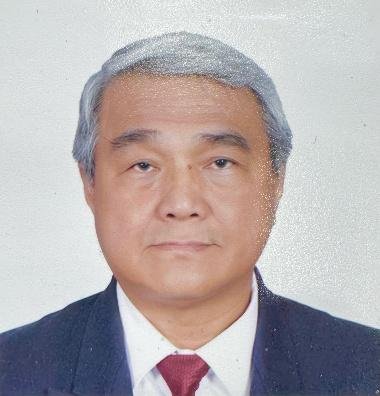
Prof Dr Janchai Yingprayoon
Prince of Songkla University, Thailand
Workshop abstract:
Engaging Young Learners through the use of materials from nature and daily life
Join us for a hands
on workshop with materials from nature and
daily life. We'll explore fun and effective ways to engage young
children by focusing on character building and essential skills.
Learn how to create a positive learning environment that
encourages kindness, cooperation, and curiosity. Through
interactive activities and practical tips, you'll discover how to help
children develop important life skills while enjoying their learning
journey. Perfect for teachers, caregivers, and anyone working
with young children, this workshop will provide you with the tools
to inspire and nurture the next generation. Let's make learning
exciting and meaningful!

R. Keeth Matheny
- Keeth Matheny, AKA “Coach Rudy,” is a national award-winning teacher, author, and speaker. In addition, he was a member of the Aspen Institute’s Social Emotional Academic Development (SEAD) Council of Distinguished Educators and supported the creation of their “A Nation at Hope” report. Keeth is a passionate and dedicated former classroom teacher with over 25 years of experience. He created and taught an innovative freshman EQ seminar which was featured in an article in The Atlantic, and has now spread to many more schools and districts. Keeth/Coach Rudy is very active in creating activities and lesson plans that support prosocial, proactive mental health behaviors, academic skill acquisition and application for students. A great example of his work can be found in the curriculum, School-Connect, of which Keeth is co-author. School-Connect is a research and evidence-based social and emotional learning curriculum used in over 3,000 secondary schools. He is also a frequent keynote speaker on SEAD, emotional intelligence, and multi-tiered systems of student support. In addition, Keeth wrote a well-received book,ExSELent Teaching, which is designed to help make social emotional and academic supports a part of every classroom’s routines and culture.
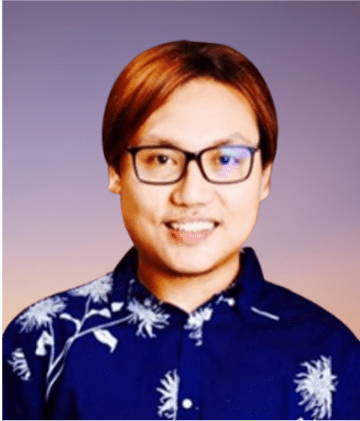
Dr Levi E. Elipane
Philippine Normal University
Dr. Elipane is currently the Deputy Dean of the College of Advanced Studies of the Philippine Normal University. Dr. Elipane’s extensive work in Education is evinced in bodies of research he has collaboratively conducted with graduate students, teachers, scholars, educators, and teacher educators all over the Philippines as he introduced Lesson Study in the country. These have produced around 50 publications in Scopus/ISI-indexed journals, refereed journals, and conference proceedings since 2011. Dr. Elipane is in the AD (Alper-Doger) Scientific Index TOP 10 Scientists for Mathematics Education in the Philippines.
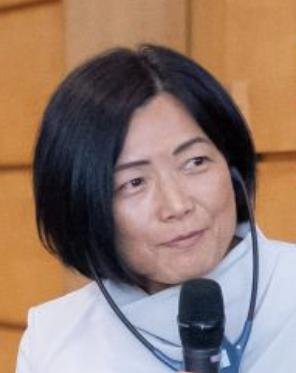
Dr Mari Yasunaga
Researcher and Sociologist of Education, Paris

Associate Prof Dr. Mei-Chih Hu
Asst Professor, Department of Child Development and Family Studies, Tzu Chi University, Taiwan
Mei-Chih Hu obtained her PhD in Multicultural Education from National Dong Hwa University in 2005 and Master of Education from Texas Tech University. She previously held positions as a kindergarten principal and a daycare director. After transitioning to higher education, she has maintained close connections with teaching environments for children in preschools through professional guidance and evaluation activities organized by Taiwan's Ministry of Education. In recent years, Mei-Chih Hu has focused on the mathematics and literacy performance of young children from the Truku Indigenous group in Taiwan. Mei-chih was also concerned with the curriculum design direction that integrates Tzu Chi’s humanistic values with picture books in six Tzu Chi Daai Preschools in Taiwan.
"Weaving Culture and Cognition: An Ethnomathematical Approach to Embodied Math Learning in Truku Preshcool"
The preschool stage is a foundational period for nurturing cultural identity and establishing multicultural educational practices. Recent developments in science and mathematics education have emphasized the importance of pluralistic and culturally responsive approaches. Early mathematical competence is a core component of cognitive development and is most effectively fostered through learning experiences that are embodied, meaningful, and culturally situated.
This speech integrates the principles of embodied cognition and ethnomathematics to explore how mathematical understanding can be developed through the cultural practices and knowledge systems of the Truku people. Ethnomathematics acknowledges that mathematical thinking exists within all cultures and that counting systems, spatial reasoning, measurement, patterns, and classification are expressed in diverse ways around the world. By drawing from the Truku community's traditional knowledge, symbols, tools, and daily life experiences, this speech seeks to highlight the cultural relevance and richness of mathematics.
The project involves the development and use of Truku-themed picture books that incorporate mathematical concepts grounded in Truku cultural practices. These books are not only storytelling tools but also pedagogical materials that embed mathematical ideas in real-life cultural contexts—such as weaving patterns, traditional house structures, natural resource gathering, and kinship relationships. The instructional activities are designed to engage children’s minds and bodies through movement, gesture, touch, and interaction with culturally meaningful materials. Through such embodied experiences, children explore and internalize mathematical ideas in ways that are developmentally appropriate and culturally responsive.

DR. Mohamad Hisyam Ismail
Dr. Mohamad Hisyam Ismail is a senior lecturer at Universiti Teknologi MARA (UiTM) and Head of Student Leadership at the Institute of Student Leadership. He holds a PhD in Science Education and specializes in STEM education, chemistry education, and teaching and learning. He has held key administrative roles, contributed to national educational initiatives, and participated in consultancy projects, including STREAM curriculum development. Dr. Hisyam is an active researcher, publishing in Scopus/WoS journals, and has received multiple academic and innovation awards. He also serves as a speaker, trainer, and editorial board member for various international journals.

Dr Ngeow Yeok Meng
(Moderator)
Dr Ngeow Yeok Meng is an Assistant Professor at the Faculty of Creative Industries, Universiti Tunku Abdul Rahman (UTAR). As the Deputy Head of the Centre for Curriculum Development and Innovation (CCDI), she helps develop teaching talents and promote innovative approaches and pedagogies among faculty members. Her expertise include Scholarship of Teaching and Learning (SoTL), curriculum development in higher education, Outcome-based Education (OBE) planning and implementation, the use of GenAI in alternative, authentic and integrated assessments. Her ongoing research projects include ‘Profiling Malaysian Learners’ Competencies in Reading, Mathematics and Science using PISA-style Test Questions’, and ‘ChatGPT In Higher Education: Educators' Reflective Practice And Recommendations For Authentic Assessments’.
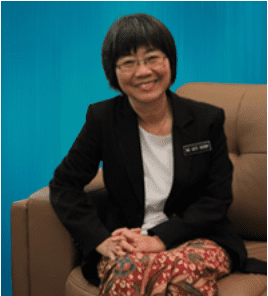
Datin Dr Ng Soo Boon
SEGi University Malaysia
Ng Soo Boon has a PhD in Education specialising in Curriculum Development and she has spent 27 years developing national curriculum from preschool to upper secondary school with her team in the Curriculum Development Division (CDD), Ministry of Education (MoE) Malaysia. Through the years, she headed the Early Childhood Sector as well as Science, Mathematics and Technology Sector in CDD. She is currently a senior lecturer in the Faculty of Education, Languages, Psychology and Music, SEGI University, teaching Master of Education in Curriculum Studies as well as supervising postgraduate students. She has been actively involved with national as well as international agencies such as UNESCO, IBE, UNICEF, SEAMEO on a number of national and regional projects related to curriculum, science, STEM, girls in STEM, and early childhood. She has published a number of papers in journals and spoke in many conferences.
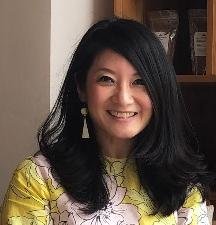
Dr Ong Dee Jean
HELP University
Workshop abstract:
Engaging Young Learners through the use of materials from nature and daily life
Join us for a hands
on workshop with materials from nature and
daily life. We'll explore fun and effective ways to engage young
children by focusing on character building and essential skills.
Learn how to create a positive learning environment that
encourages kindness, cooperation, and curiosity. Through
interactive activities and practical tips, you'll discover how to help
children develop important life skills while enjoying their learning
journey. Perfect for teachers, caregivers, and anyone working
with young children, this workshop will provide you with the tools
to inspire and nurture the next generation. Let's make learning
exciting and meaningful!
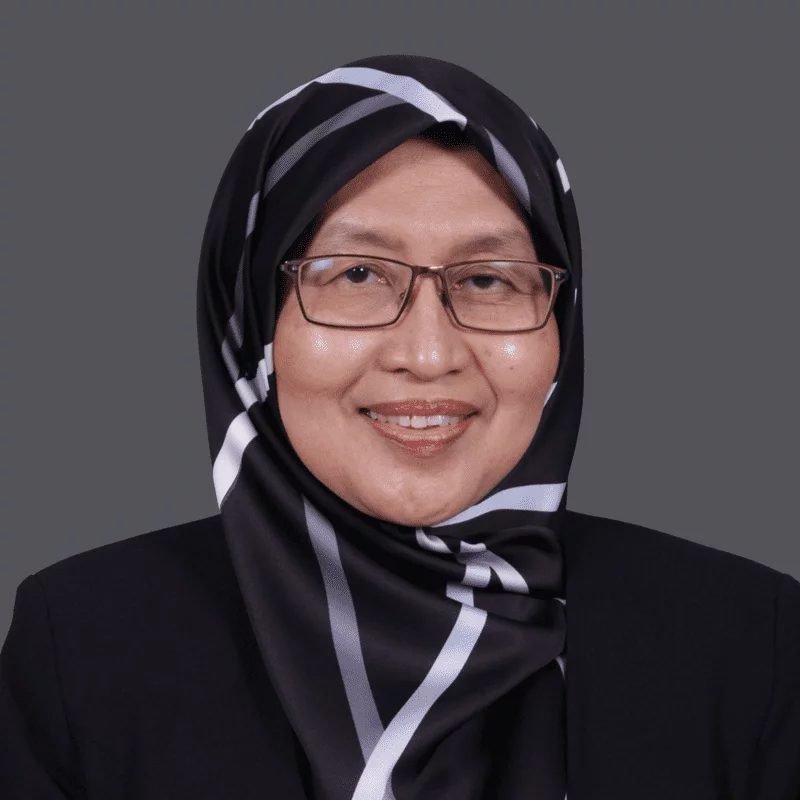
Prof. Dr. Rohaida Saat ( STEM )
Honorary Professor in Department of Mathematics and Science Education, Faculty of Education, University of Malaya
Prof Dr Rohaida Mohd. Saat is an Honorary Professor in the Department of Mathematics and Science Education, Faculty of Education, University of Malaya. She previously served as the faculty’s dean. Her research interests include science education, teacher education, curriculum development and qualitative research methodology. Her recent work explores the scientist-teacher-student partnership (STSP) in science teaching and learning. Her latest publication, "Technology-Enhanced Personalized Learning: Lessons from Online Teaching at Three Southeast Asian Universities," will appear in the Contemporary Educational Technology Journal (April 2025 issue).
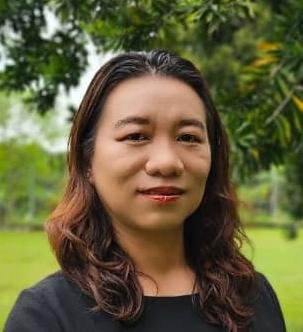
Dr Pang Jee Ching
Nilai University
Jee Ching, Pang obtained her PhD in Special Education from Universiti Malaya in 2018 and Masters in Special Needs (University of Nottingham, Malaysia) in 2012. She has 26 years of experience working closely with individuals and families who are living with intellectual and developmental disabilities, including Autism, ADHD and Global Developmental Disorder. As an academic since 2019, she maintained connections with the community by conducting workshops, support groups and individual consultations. She believes that each individual has their own potential where understanding and support are fundamental to coping with life. She always emphasises building up their sense of self, setting life directions and self-advocacy skills towards living a meaningful life underpinning systemic intervention. By developing their own sense of self with guided achievable personal goals, nothing is impossible in life.
Workshop abstract: (hybrid)
Naughty Children or Children in Crisis?
This workshop shall provide opportunities for the participants to understand our world view on human behaviours underpinning the potential of each child in the classroom, following the increasing number of children with diverse learning needs in the post-pandemic and digital technology advancement. By understanding and accepting the uniqueness and potential of each child, practical strategies for educators will be discussed as educators are encouraged to re-think the strategies in fostering a more emotionally resilient learning environment in the classroom utilizing a competency-based curriculum.
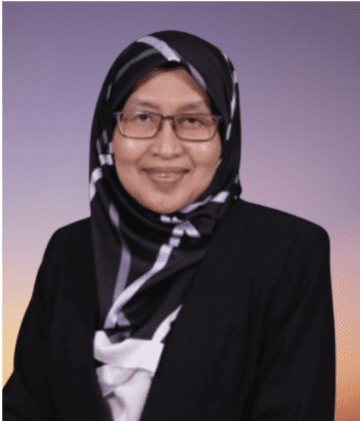
Prof Rohaida Saat, Honorary Professor
University Of Malaya
Prof Dr Rohaida Mohd. Saat is an Honorary Professor in the Department of Mathematics and Science Education, Faculty of Education, University of Malaya. She previously served as the faculty’s dean. Her research interests include science education, teacher education, curriculum development and qualitative research methodology. Her recent work explores the scientist-teacher-student partnership (STSP) in science teaching and learning. Her latest publication, "Technology-Enhanced Personalized Learning: Lessons from Online Teaching at Three Southeast Asian Universities," will appear in the Contemporary Educational Technology Journal (April 2025 issue).

Dr Siew Siew Kim
(Moderator)
Dr Siew Siew Kim obtained her PhD in Early Childhood Care and Education from University of Malaya. She was a secondary school teacher and now serves as Chief Assistant Director, in Preschool Sector, Curriculum Development Division, Ministry of Education Malaysia. She has abundant experience in early childhood, especially in developing curriculum and program. She is actively involved in various NGO’s and now the secretary of Association of Professional in Curriculum and Educational Instruction, Malaysia, as well as Malaysia Association of Professional Early Childhood Educator.
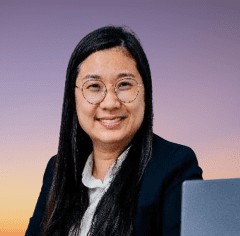
Ms Tan Kim Kiek
Ms Tan is a Partner in Messrs. Karmen, Yeen, Kim & Co, Advocates & Solicitors. She completed her law degree in University of London (Hons) in 2008 and established Messrs. Kim & Co, in 2018. Driven by her passion for criminal law, she has devoted her time and skills as a volunteer lawyer at Yayasan Bantuan Guaman Kebangsaan (YBGK) since 2016. Ms Tan has been actively involved in sexuality education and serves as a watching brief lawyer for sexual assault survivors on behalf of organizations such as Women’s Aid Organization (WAO). She completed master’s degree in Human Sexuality from Shu-Te University, Taiwan in 2024. She is a Committee Member of the Advocates & Solicitors Disciplinary Board of Malaysia, and a legal consultant for the Society for Scientific Study of Sexuality in Kuala Lumpur and Selangor.
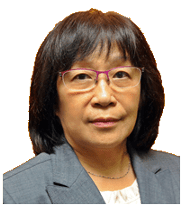
Ms Teh Kim Hong
Mathematics Educator
Ms Teh served in the Teacher Education Institute (TEI) for 20 years in mathematics education and another 6 years in SEAMEO RECSAM in the same field. She is affiliated with the Association for Science and Mathematics Education Penang (ASMEP) since 1996. Through the long years of service, she experienced various changes and developments in mathematics curriculum and education, particularly in primary mathematics. She was involved in pre-service diploma and degree programs, and professional development of in-service teachers for the local, ASEAN and African teachers in primary mathematics. Her previous involvement in school practicum and participation in a lesson study immersion program at the Tokyo Gakugei University led her to promote lesson study with the local educators to improve professional practices. In recent years, she focused on developing early and key stage one mathematics, essential as a foundation for a good grasp of mathematics learning for young learners in their subsequent learning years.
Workshop abstract:
Developing Mathematical Thinking and Values in Early Years and Primary Mathematics
Mathematics teachers often emphasize the subject matter knowledge and give less weight to developing mathematical thinking and values while teaching mathematics. This workshop is designed to promote and encourage mathematic teachers to integrate the mathematics content together with the mathematical thinking processes and values while planning their lessons. Workshop participants will be given sample tasks on numeracy and problem solving to develop mathematical thinking. By working through the exercises and discussions, participants will be more aware that developing mathematical thinking and values is equally essential to developing students’ mathematical competency.
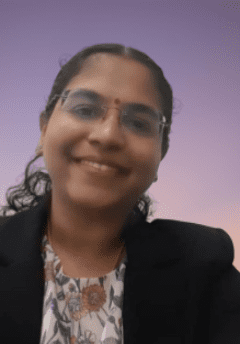
Dr Thurkadevi Munikanan
Dr Thurkadevi is a psychiatrist at Hospital Miri, Sarawak. She completed MBBS (Melaka Manipal Medical College), Master in Psychiatry and Doctor of Psychiatry UKM. She has served in the Ministry of Health for more than 15 years, including Hospital Permai JB, PPUKM, Hospital Kuala Lumpur, Taiping Hospital and Hospital Tuanku Ja’afar Seremban and Hospital Bentong. Currently, Dr Thurkadevi is pursuing her special interest in mindfulness learning, training and empowerment. She is a Certified Trained Teacher in Mindfulness-Based Cognitive Therapy (MBCT) at Oxford Mindfulness Centre since 2018. She teaches mindfulness curriculum to teenagers and worked as a Lecturer in Psychiatry at Perdana University - Royal College of Surgeon In Ireland.

Dr Wei Chooi Yi
Dr Wei Chooi Yi heads the Department of Finance at the Faculty of Business and Finance, and the Chairperson of Centre for Learning and Teaching at Universiti Tunku Abdul Rahman (UTAR). She leads researchers in organising symposiums, forums and webinars on teaching and learning, empowering educators and learners to develop niche skills, interest and passion. She has published in the areas of education, social development and behavioural finance, authored and co-authored over 25 indexed journals and published over 30 articles in conference proceedings.
